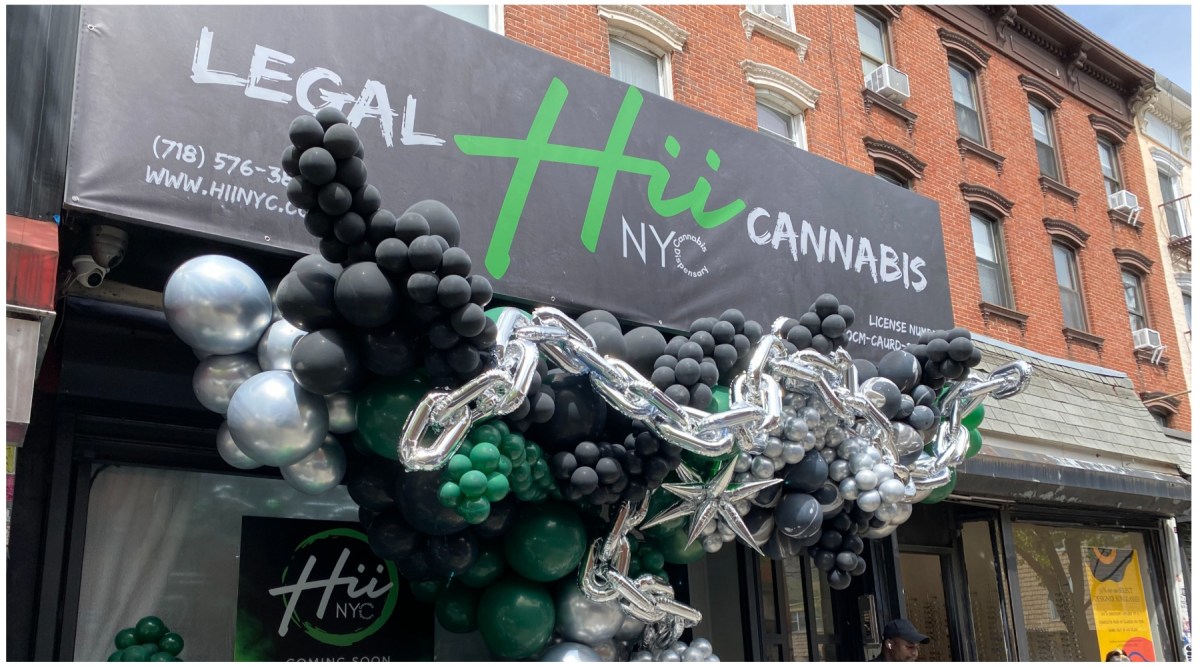
Incoming NYPD Commissioner James O’Neill is inheriting historically low crime numbers.
But he’s also facing years of bumpy relations with the community, controversy over the department’s use of broken windows-style policing and the waning aftermath of a federal corruption investigation.
As an officer who came up through the ranks, heralded as the “architect” of the latest iteration of community policing, many say Jimmy — no one calls him James — is uniquely qualified for the job.
But as he swaps his uniform for suits and takes over the top job, O’Neill, 59, has a few challenges ahead of him.
“If he can get his hands around the morale issues that he has, I think he can get a lot more done than not,” said Joseph Giacalone, a retired NYPD detective who lectures at John Jay College of Criminal Justice. “He’s got crime low so he can concentrate on other things.”
Giacalone said everything from the recent bribery investigation to the fatal shootings of officers Rafael Ramos and Wenjian Liu are still very much on officers’ minds and “they have very long memories.”
But O’Neill, he said, has the unique opportunity to appeal to his rank-and-file as one of them. And the mayor and City Council, Giacalone said, are going to have to cut him a bit of a break.
“They’re going to have to give him some leeway until he figures out the politics game,” Giacalone said.
But the first days will be critical, said a former law enforcement official who asked to remain anonymous, as O’Neill has to convince the rank-and-file to get behind him. The official said when an incident of possible misconduct emerged, outgoing Commissioner Bill Bratton, 68, balanced the need to investigate the incident with the importance of not jumping to conclusions. The test in the beginning for O’Neill, the official said, is how he will handle a similar situation.
“He’s never been in this situation before. He’s never been faced with political pressure to make a decision regarding the actions of a police officer,” the official said. “We all hope and pray that he’s going to remember that he is a police officer.”
In his tenure as Chief of Department, O’Neill has made it his business to advance community policing. In the abstract that has meant improving the relationship with the community at the same time as Bratton has continued to push Broken Windows-style policing (or cracking down on lower-level offenses like littering to prevent bigger ones).
The latest revival of this concept is the Neighborhood Coordination Officers (NCO) program, where two officers are posted to the same spot at the same time each day with the aim of establishing relationships. In August, the program expanded to cover 51% of all commands.
And while O’Neill has said measuring statistics like the murder rate or robberies in these commands — compared to those that don’t have NCOs — is a way to track the program’s success, it’s going to take longer to see if it’s really working.
“The cops are embracing it,” O’Neill said in August at police headquarters. “We have a lot of work to do. Cops sometimes have a difficult time with change. … But this change is a good change.”
Time will tell if O’Neill actually succeeds in bridging the gap between police and communities of color which tackling all the other morale issues he faces, said Sergeants Benevolent Association president Ed Mullins.
“The good news is he came up through the ranks. We’re going to have to give him a chance and see how it goes,” Mullins said. “I’ve been through a lot of police commissioners. All you can ask for is fairness.”
O’Neill was born and raised in East Flatbush, Brooklyn, and actually began his career in the city’s Transit Police Department in 1983 — Bratton served as its chief in the early ’90s before becoming commissioner the first time around.
O’Neill was then promoted to sergeant in 1987, lieutenant in 1992, captain in 1997, inspector in 2003, deputy chief in 2005 and chief of department in 2014, according to the NYPD.
U.S. Rep. Hakeem Jeffries, a vocal critique of the de Blasio administration who just this week slammed the NYPD’s use of overtime for officers on modified duty, as well as the refusal to release personnel records for cops, said the department is prone to secrecy.
“I’ve got great respect for Jimmy O’Neill and I’m cautiously optimistic that he’s going to move this department in a different direction,” Jeffries said, speaking in front of police headquarters on Wednesday.
Tthe department has also faced criticism over striking a deal with the City Council to table the Right to Know Act, a package of two bills that would call on police to identify themselves and give out business cards during stops, as well as to seek consent to search people when there is no probable cause.
Donna Lieberman, the executive director of the New York Civil Liberties Union, said the department has made strides in reducing the use of stop and frisk, but denounced the reliance on broken windows-style policing and Bratton’s resistance to transparency.
“The new commissioner should embrace de-escalation tactics and community-based policing,” Lieberman said in an email. “A good start would be supporting the Right to Know Act.”
Some experts on both sides of the argument say New Yorkers shouldn’t expect much to change when O’Neill takes over.
As a critic of the department, Robert Gangi, the director of the Police Reform Organizing Project, said he expects a continuation of broken windows-style policing, which he believes unfairly targets communities of color.
And while he said O’Neill may make some smaller changes (like perhaps taking steps to curb back the overtime pay for officers on modified duty), he doesn’t believe anything major will be different.
“He’s clearly a protégé of Bratton. We expect him to continue the same objectionable policies,” Gangi said.
Lumumba Bandele, a member of Communities United for Police Reform, said he doesn’t believe O’Neill will enact any of the sweeping reform he believes the NYPD needs, like having a “zero tolerance policy” for officers suspected of misconduct.
On the flip side, one high-ranking law enforcement official said staying with Bratton’s ideals is actually a good thing.
“I think he’s going to continue right in line with Commissioner Bratton’s policies, passions, and caring about people,” the official said. “It’s going to a be a very smooth transition.

















